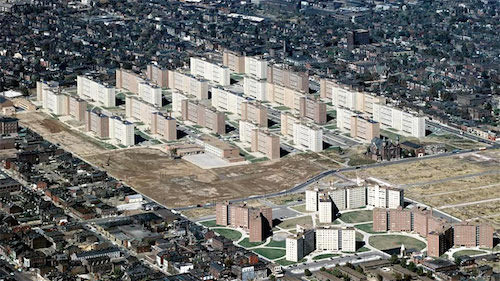Fifty Years Since the St. Louis Rent Strike of 1969 Ended
Yesterday was the 50th Anniversary of the end of the 1969 St. Louis Rent Strike. Upset by poorly built & maintained public housing, tenants refused to pay their rent.

Much was written about the rent strike, here’s the abstract from a 2013 academic paper titled The St. Louis Rent Strike of 1969: Transforming Black Activism and American Low-Income Housing:
In 1969, public housing tenants launched a rent strike that shaped federal legislation and helped make housing a central concern of the Black Freedom Struggle. In addition to providing a detailed narrative of the rent strike, this article follows the lives of the rent strike’s three primary leaders—Ivory Perry, the Rev. Buck Jones, and Jean King. Following the rent strike, Ivory Perry worked to curb lead poisoning while Buck Jones sought to reform welfare in Missouri. Later, Jones labored to improve living conditions in East St. Louis, Illinois. Jean King worked with private developers following the rent strike, helping remake the architecture and management of low-income housing. By focusing on how these individuals aided the rent strike, and by following their subsequent life careers, this article demonstrates that the St. Louis rent strike influenced developments central to American low-income housing and black activism in the St. Louis metropolitan area.
Strikes are an effective way to force change. Still, some would like to end unions and strikes. In the recent non-scientific Sunday Poll there was more responses than usual, but the pattern didn’t change.
Q: Agree or disagree: To reduce economic disruption strikes should be limited by law
- Strongly agree: 2 [2.7%]
- Agree: 0 [0%]
- Somewhat agree: 0 [0%]
- Neither agree or disagree: 1 [1.35%]
- Somewhat disagree: 0 [0%]
- Disagree: 5 [6.76%]
- Strongly disagree: 65 [87.84%]
- Unsure/No Answer: 1 [1.35%]
We must be diligent to protect the right to strike.
— Steve Patterson